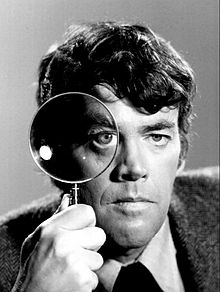By Scarlett Braden from Amazon Ad School
For a few years now there have been many theories about which keywords are the fairest in the Amazon Advertising Lands.
Lining Up the Suspects
First, it was believed you needed to accumulate 1,000 Amazon ASIN numbers to assemble a well-performing ad. And then, suspicion was thrown toward titles, genre keywords, and author names. Also boughts decided to take one for the team and confessed that they were the most superior keywords for ads.
After careful scrutiny, some fact-checking, and laboratory results we finally are confident we have arrested the true suspects in the Keyword Capers. On one hand, it wasn’t as big of an organized group as first suspected, but the reach was far!
To fully comprehend the results, we utilize the six degrees of separation theory. Here are the important details you need to know. No names have been changed.
Titles and authors as well as series names become the best-performing keyword targets. But I hear you saying, “That’s kind of like saying everyone named Joe is a suspect.” Right? How do we narrow down which titles, series names, and authors are the ones to trust to promote our books? That’s where the six degrees of separation come in! It’s our greatest sleuthing tool by far.
Looking for Clues
Our primary list of targets is the category bestsellers list. We do want to look them over carefully, though. Every once in a while, we find a title that is lost and hanging out in the wrong hood. Then, we move on to those titles that are infiltrating our closest friends—the also boughts. Again, we do want to keep an eye out for the random stray.
We now know that Amazon Ads perform the best with a range of 100–150 keywords. We also know that we need many, many ads to help round up our readers. So, we need to know where the rest of the gang is hanging out and how to find them.
It’s a logical conclusion that if readers who read my book also read book X, and readers of book X also like book Z, then the readers of book Z might also like my book. And there we have a degree of separation.
Sometimes these are easy connections to make. For instance, readers of James Patterson also are fans of John Sanford. And readers of John Sanford books tend to also like Lee Childs books. James and Lee share the same readers too! By identifying what readers like, we can dig into also boughts for those books (as well as playing our game of six degrees of separation). This will allow us to come up with virtually endless lists of keyword targets that will lure readers over to our side.
But other times, it’s not quite so easy. Is your book a really small niche non-fiction book, for example? Maybe there are only a dozen books out about “How to Rope the Electronic Horse at the Walmart While Riding a Unicycle.” Even when you go to look at the also boughts for those competing books, you probably will find that some of them have nothing at all to do with the topic of your book. So, now what?
Knowing the Victim… Ahem, Reader
Now is when it’s a really good idea to know your target reader. And by know them, we mean who are they and what do they do, read, and like? There’s probably a strong likelihood that your target reader might have also read a few books about riding unicycles. Or roping horses. They may even be fans of historical western fiction. You can search out the clues and identify the trends as well as the titles.
Or what if you write medieval war fiction about romances during the Hundred Years War? There might be enough similar books to use as keyword targets for one ad. But then what? Ask yourself, “When the readers who love reading about medieval war romance finish reading this list of books, what do they read?” Do you think they just stop reading? I propose that they do not. Just like when you finish binge watching the latest season of your favorite show…(for the eighth time), you probably settle for a second best show. It’s not your favorite, but it’s still interesting and entertaining, and it will occupy you while you wait for another season.
One last place to be sure to hunt for keyword targets? How about the lists of similar books that readers create on Goodreads? It’s a sure bet that the readers themselves have found the best complementary books to their favorites.
The Sentencing
In some genres, the caper of hunting for Amazon Ad keywords may be a one-time offense (smaller niches may only have hundreds of relevant targets). But with book that have a wider reach, you may be able to look for “suspects” to get your ads more clicks over and over again!
***
Want to get help selling more books through better Amazon Ads? Join our upcoming 5-Day Amazon Ad Profit Challenge, a free community course with tons of support. Click and Register to join the upcoming event.
